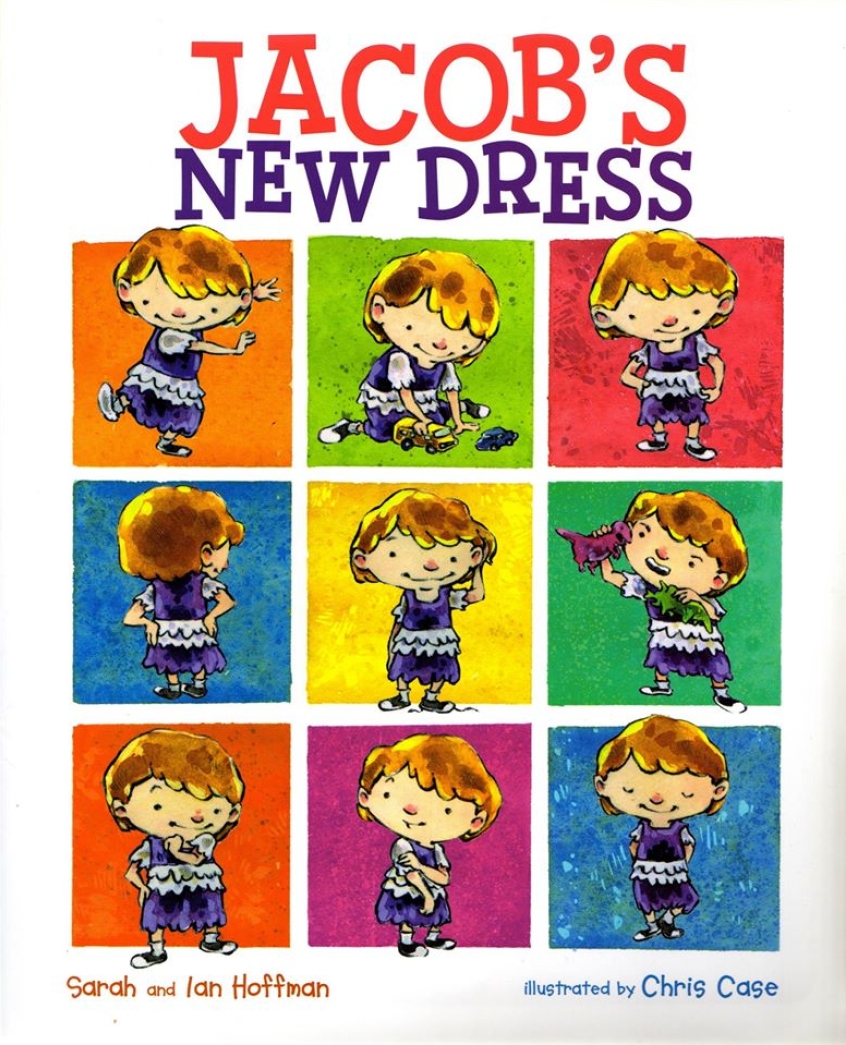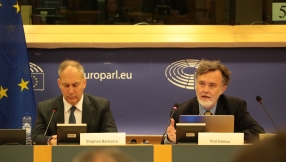
A North Carolina school system has dropped its plans to use a book that a Christian group accused of being transgender 'indoctrination'.
The children's book Jacob's New Dress, by Ian and Sarah Hoffman, tells the story of a young boy who likes to wear dresses.The bookwas going to be used in the Charlotte-Mecklenburg Schools system in North Carolina as part of an anti-bullying initiative, according to the New York Times.
The book came under fire from the 'pro-family' North Carolina Values Coalition, a conservative Christian group that took issue with the book's attempt at transgender 'indoctrination'.
'I read the book online', said, Tami Fitzgerald, executive director of the coalition.
'It's clearly geared to young children. The book is meant as a tool of indoctrination to normalize transgender behavior. I think a lot of parents would object to that.'
In the story the boy Jacob dresses up as a princess in a sparkly pink dress, and decides he likes wearing dresses. His parents are encouraging and supportive of his new disposition.
'We believe the purpose of first grade is to teach writing, reading and math and not to teach boys to wear dresses', Fitzgerald said.
The group began campaigning after a teacher complained about the book to them. They had emailed their members and drafted a petition against the book's use before the school system reversed its decision.
The school said in a statement last week that the book was intended to teach about 'valuing uniqueness and difference' but had been replaced due to 'some concerns' about it.
Author of Jacob's New Dress Ian Hoffman said in an email that the idea 'that a book can turn someone gay, or transgender, or anything else is bizarre'.
He asked: 'If a white kid reads a book about Martin Luther King, is that kid going to become black? If a ballerina reads a book about football, is that going to make her try out for the NFL?
'What the North Carolina backlash tells us is that our book is needed,' he said. 'Our hope, when we wrote this book, was that some day it would be considered quaint. We imagined future generations saying, "What was the fuss about?" Clearly, there's more work to do.'













